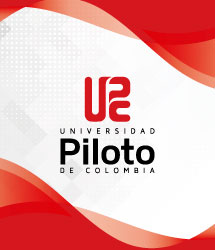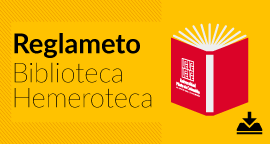- Universidad Piloto de Colombia
- Trabajos de grado - Pregrado
- Facultad de Ciencias Humanas
- Psicología
- View Item
Fortalecimiento de la identidad cultural en la etnia koreguaje en el Resguardo Jericó Consaya, Municipio de Solano – Caquetá : la separación de las partes para fortalecer el gobierno propio
Date
2022-06-21Author
Palomares Arboleda, Daniela
xmlui.dri2xhtml.METS-1.0.item-advisor
Bernal Rojas, Gabrierl Alejandro / Asesor
Metadata
Show full item recordAbstract
Las dinámicas sociales del país, como el conflicto armado, el narcotráfico, la explotación de recursos naturales, etc., han generado un desgaste cultural e identitario en las diferentes comunidades étnicas del país, como lo dice Zambrano, (2017) “pero estos esfuerzos son todavía insuficientes para crear una cultura de reconocimiento y protección, que está siendo desplazada, por los diferentes hábitos de vida que se han adoptados por la globalización y el uso de las nuevas tecnologías” (citado por Rivera, 2020, pág. 20). En este marco, el presente proyecto nació a raíz de una serie de encuentros con la etnia Koreguaje y, frente a los resultados obtenidos, gracias al apoyo de la herramienta de investigación, IAP (Investigación, Acción, Participativa) que brinda el aporte de un diagnóstico para el pertinente análisis de la realidad de la comunidad sujeto de estudio, tuvo como propósito construir un taller con el fin de fortalecer la identidad cultural Koreguaje, en el resguardo Jericó Consaya en el Municipio de Solano – Caquetá. Esta identidad cultural, hace parte de un concepto más general e importante para las etnias colombianas, como lo es el Gobierno Propio y del cual surgen conceptos como la Ley de Origen, la Autonomía Propia, el Gobierno Mayor, la Medicina Ancestral, la consejería y los sitios de concentración. A partir de una serie de conversaciones con miembros de la Asociación de Autoridades Indígenas del Municipio de Solano-Caquetá (ASIMC), autoridades, mayores y comunidad de la etnia Jericó Consaya, se logró identificar que la pérdida de identidad cultural ha generado una ruptura en la compleja estructura del Gobierno Propio. Es válido aclarar que, por la misma complejidad de esta estructura, es pertinente aplicar el principio hologramático de Edgar Morin el cual consiste en aprehender el todo desde sus partes, “Entonces podemos enriquecer al conocimiento de las partes, en un mismo movimiento productor de conocimientos.” (Morin, 1994, pág. 68). Finalmente, son los mismos habitantes quienes afirman la necesidad de fortalecer la identidad cultural para darle frente a las problemáticas que se han derivado de esta ruptura. Y, por otro lado, analizar desde la perspectiva decolonial cómo el poder occidental invisibiliza el poderoso saber ancestral y cómo este poder eurocéntrico se convierte en el único saber posible de aprender. The social dynamics of the country, such as the armed conflict, drug trafficking,
exploitation of natural resources, etc., have generated a cultural and identity erosion in the
different ethnic communities of the country, as stated by Zambrano, (2017) "but these efforts are
still insufficient to create a culture of recognition and protection, which is being displaced by the
different habits of life that have been adopted by globalization and the use of new technologies"
(quoted by Rivera, 2020, p. 20). In this framework, the present project was born as a result of a
series of meetings with the Koreguaje ethnic group and, in view of the results obtained, thanks to
the support of the research tool, PAR (Participatory Action-Research) in spanish IAP
(Investigación, acción, participativa) that provides the contribution of a diagnosis for the relevant
analysis of the reality of the community under study, it aims to build a workshop in order to
strengthen the Koreguaje cultural identity, in the Jericó Consaya reservation in the Municipality
of Solano - Caquetá. This cultural identity is part of a more general and important concept for the
Colombian ethnic groups, such as the Own Government, from which concepts such as the Law
of Origin, the Own Autonomy, the Major Government, the Ancestral Medicine, the counseling
and the concentration sites arise. From a series of conversations with members of the Association
of Indigenous Authorities of the Municipality of Solano-Caquetá (ASIMC), authorities, elders
and community of the Jericho Consaya ethnic group, it has been possible to identify that the loss
of cultural identity has generated a rupture in the complex structure of the Self-Government, It is
valid to clarify that, due to the same complexity of this structure, it is pertinent to apply Edgar
Morin's hologrammatic principle, which consists of apprehending the whole from its parts,
"Then we can enrich the knowledge of the parts, in the same knowledge-producing movement".
(Morin, 1994, p. 68). Finally, it is the inhabitants themselves who affirm the need to strengthen
cultural identity in order to face the problems that have resulted from this rupture. And, on the
other hand, to analyze from a decolonial perspective how Western power makes the powerful
ancestral knowledge invisible and how this Eurocentric power becomes the only possible
knowledge to learn.
Collections
- Psicología [525]
The following license files are associated with this item:






